University of Maryland announces a webinar series discussing salt contamination of water supplies in tidal rivers.
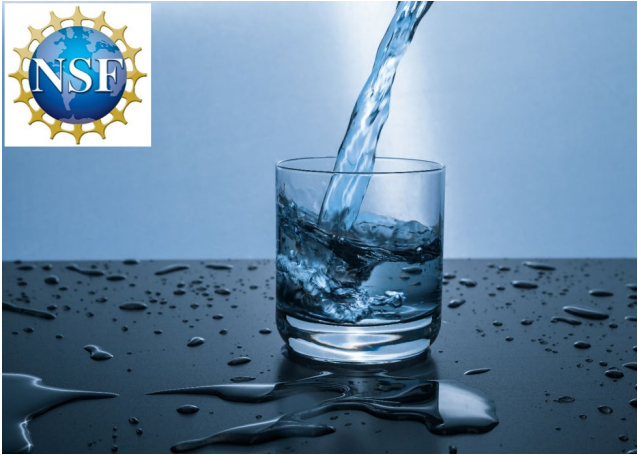
Our institute member University of Maryland is pleased to announce a webinar series discussing salt contamination of water supplies in tidal rivers. The first webinar will be held on 27 June 2023 at 1-2.30 pm.
Funded by the U.S. National Science Foundation, this project will bring together an interdisciplinary team of researchers to assess the risks of salt contamination of water supplies in tidal rivers, synthesize the current understanding and identify knowledge gaps. Case studies of saltwater intrusion and freshwater salinization in tidal rivers in the U.S. and around the world will be discussed and synthesized.
Webinar I: Salt contamination of water supplies in tidal rivers of Chesapeake Bay
Time: 27 June 2023 (1:00 - 2:30 pm)
Access to clean and safe drinking water is critical to public health and economic prosperity. About 70% of U.S. drinking water supply comes from surface waters, including the tidal fresh regions of estuaries. Drought, sea level rise, watershed and port & harbor engineering, and changes in land-use are increasingly threatening such water supplies in coastal regions due to increasing risk of salinization. The risk extends to water extraction from the coastal zone for thermoelectric power, irrigation, and industrial production.
A series of virtual panels will be held between June 2023 and August 2024. We will discuss and review case studies of saltwater intrusion and salinization of freshwater in tidal rivers in the U.S. and around the world. An interdisciplinary team of researchers and stakeholders will be brought together to assess the risks of salt contamination of water supplies in tidal rivers, synthesize the current understanding and identify knowledge gaps. This exploratory investigation is timely and globally relevant as water infrastructure around the world is under threat from climate change, salinization, and local anthropogenic pressures. A better understanding of climatic and other anthropogenic effects on the water supplies will be valuable for bolstering the resilience of water infrastructure and protecting public health.
Organizing Committee
Ming Li
Sujay Kaushal
Alfonso Mejia
Robert Chant
David Ralston
Panelists
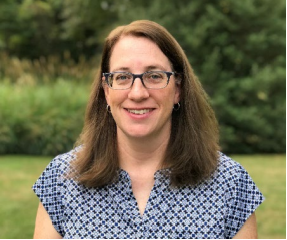 Cheryl Dieter
Cheryl Dieter
Cheryl Dieter is a hydrologist with the U.S. Geological Survey (USGS), Maryland-Delaware-DC Water Science Center (WSC). She manages the USGS Water-Use Data Management Function and is the Water Use Specialist for the Maryland-Delaware, and District of Columbia WSC. Cheryl also leads projects focused on improving the availability and quality of water-use data that are used to inform, train, calibrate, and verify water use estimation models, and inform national, regional, or local water availability assessments.
 Dr. Jian Shen
Dr. Jian Shen
Dr. Jian Shen is a Research Professor at the Virginia Institute of Marine Science. His research interests revolve around numerical modeling of circulation, hydrodynamics, and water quality processes in estuaries, and applying these models to answer scientific questions and inform management decisions, such as desalination plant siting, water withdrawals, and discharges for municipal water supplies and manufacturing plants. He has conducted theoretical analysis and numerical modeling to understand the interactions between transport and biochemical processes. His most recent research has been focused on examining water and pollutant exchanges and their relationships with external forcings and residence time in the Chesapeake Bay; coupling particle tracking and mass conservation model to simulate harmful algal bloom; using a data-driven modeling to simulate the spatiotemporal variations of chlorophyll-a and dissolved oxygen in the Bay, as well as impact of changes in climate on estuarine water quality.
 Sujay Kaushal
Sujay Kaushal
Dr. Sujay Kaushal is a professor in the Department of Geology and Earth System Science Interdisciplinary Center at the University of Maryland, College Park. His areas of expertise are biogeochemistry and hydrology. He completed a Bachelor of Arts in Biology (concentration in ecology and systematics) at Cornell University, and he completed his PhD in Biology (concentration in biogeochemistry) at the University of Colorado, Boulder. He completed his postdoctoral research at the Cary Institute of Ecosystem Studies (2003-2005). Before he joined University of Maryland, College Park. he was an assistant professor at the University of Maryland Center for Environmental Science from 2005-2010. His research focuses on freshwater salinization syndrome, long-term chemistry of fresh waters, effects of land use and climate change on water quality, and managing and restoring freshwater ecosystems.
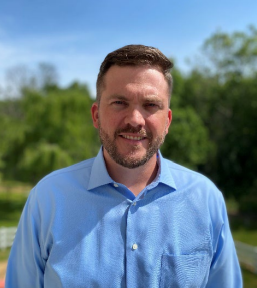 Robert Peoples
Robert Peoples
Robert Peoples currently serves as the Maryland Department of the Environments Source Protection and Water Appropriation Division Chief within the Water and Science Administrations Water Supply Program. He and his team provide technical reviews of water use and the associated impacts from withdrawals of both groundwater and surface water; manage the issuance of Water Appropriation and Use Permits; coordinate source water protection activities for public water systems; evaluate reliable capacity of water system sources; and approve new public water sources.
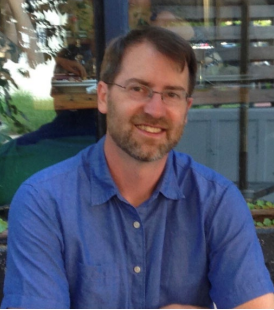 Andrew Staley
Andrew Staley
Andrew Staley currently serves as the Maryland Geological Survey’s Hydrogeology & Hydrology Program Chief. He and his team conduct applied hydrogeology research, primarily focused on the development of hydrogeologic datasets for assessment of water resources of the State. His recent work includes aquifer framework and hydrologic characterization through the collection and analysis of field data such as water levels, hydraulic test data, drill cuttings, cores, and borehole geophysical logs. He has participated in GPS/GNSS campaigns to gauge the effects of groundwater use on land subsidence in the Chesapeake Bay region, and he helped to develop Maryland’s Plan to Adapt to Saltwater Intrusion and Salinization.
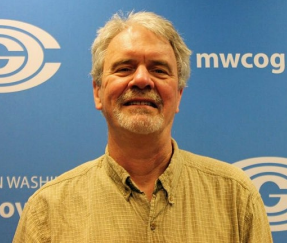 Karl Berger
Karl Berger
Karl Berger manages water quality monitoring and modeling efforts at the Metropolitan Washington Council of Governments (COG). These include a COG-funded effort to explore the sources and potential mitigation of freshwater salinization in the national capital region conducted by Virginia Tech’s Occoquan Watershed Monitoring Lab, the University of Maryland’s Earth System Science Interdisciplinary Center, and the U. S. Geological Survey. As a COG consultant, Mr. Berger continues to provide input into the direction of this research.
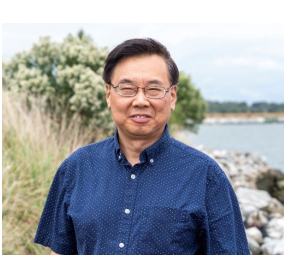 Dr. Ming Li
Dr. Ming Li
Dr. Ming Li is a Professor at the University of Maryland Center for Environmental Science. His research spans several areas in oceanography, including estuarine and coastal dynamics, sea level rise, storm surge, and air-sea interaction. He is also actively engaged in interdisciplinary research to address pressing environmental problems such as hypoxia, ocean acidification and harmful algal blooms. He is a Specialty Chief Editor at Frontiers in Marine Science and an Associate Editor at Continental Shelf Research. A major focus of Dr. Li’s research is the regional impacts of climate change and extreme weather events on estuaries and coastal oceans. He is the principal investigator of NSFfunded Research Coordination Network to advance interdisciplinary research for building resilient communities and infrastructure in the nation’s estuaries and bays. He is also leading a global synthesis of salt contamination of water supplies in tidal rivers.
Please contact Dr. Ming Li at mingli@umces.edu for any questions.
This project is funded by the U.S. National Science Foundation and is a joint effort among the following institutions:
